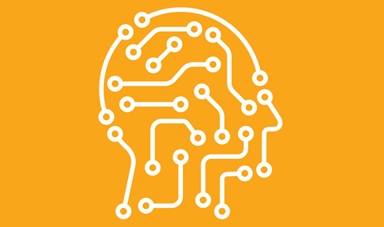Loading component...
At a glance
- Assigning bots to mundane and repetitive but necessary tasks drives greater consistency and a clearer audit trail.
- Automating such tasks also dramatically reduces the time taken and cost incurred to complete them.
- The transformation of jobs due to automation enables accountants to take on higher-value work – to extract useful insights from larger datasets.
New technologies that allow rapid processing of data promise to transform the jobs of many finance professionals, including accountants and auditors.
Don’t assume that means job losses.
When routine tasks are performed by automation, many people will not have to perform repetitive entry-level tasks, but they will be challenged to do higher-value work.

The real value – and rewards – will lie with those who can extract useful insights from accurate data and navigate between the realms of technology and business: the natural element of many accountants.
Although artificial intelligence and automation will intrude on accounting, their combined effect will be to elevate the role of accountants, not diminish it, says Michael Davern CPA, who is professor of accounting and business information systems at the University of Melbourne’s Faculty of Business and Economics and co-author of a report into the impact of technology on the accounting profession.
Take, for instance, technology to automate well-defined and repetitive tasks such as bank reconciliation or the processing of supplier invoices.
Adding value with RPA
“Bots” are available that can extract relevant data from sources such as emailed files or bank statements, and transfer and organise it in another system such as a spreadsheet.
This technology, known as robotic process automation (RPA), can not only dramatically cut the cost and time taken to perform mundane but necessary tasks, but also lends itself to greater consistency and a clearer audit trail.
Of course, it does take some work away from those normally responsible for such activities, such as entry-level and junior accountants. Davern says the change will free them up to take on more challenging and rewarding tasks at earlier stages in their career.
“In this regard, RPA can actually enrich [their work]. It means they will likely be carrying out higher-value tasks that require more judgement at an earlier stage of their career than has historically been the case,” he says.
Ultimately, the limitations of RPA mean it will not lay waste to the accounting profession.
Bots are heavily reliant on data structure, labelling and definitions. Just a small change in the wording of an item line could lead to failure.
Furthermore, bots are not perfect, and even a small error can rapidly turn into a major problem given the speed and volume at which they work. They need to be subject to appropriate oversight and control from someone who retains knowledge of the tasks they carry out.
The limits of intelligence
Even if robots are not about to replace accountants, other technological developments – artificial intelligence (AI) and sophisticated data analytics – are set to shake up the profession.
These terms refer to a collection of tools and techniques concerned with patterns in data that can be translated into actions.
Neither AI nor data analytics are particularly new, says Davern, but advances in processing power, a rapidly intensifying web of data connections and the sheer velocity of activity have brought these technologies out of the lab and into the business realm.
Potential applications are wide-ranging. Machine-learning algorithms can be used in fraud detection by training them to differentiate between fraudulent and legitimate transactions. Algorithms can be used in retailing to identify clusters of goods commonly sold together. They can also pick out anomalous transactions on credit cards, develop sales forecasts or predict the likelihood of a customer defaulting on a loan.
Data is the raw fuel of these functions, and it comes in a multitude of forms that are far beyond what accounting has traditionally dealt with.

“What technology is doing is amassing global information at amazing, breakneck speeds, causing these huge surges in data,” says Dr Simon Eassom, executive general manager, Member Education, CPA Australia.
“Most of that data is unstructured. It’s just free-flowing data from Word documents, PDFs, HTML script on websites, from telecommunications, from images. It’s not data that exists in a ledger or a database.”
Davern, whose expertise spans accounting and computing, says this is the natural realm for accountants.
“We are the original business data specialists,” he says.
“To me, accounting is the science of measurement combined with the art of persuasive communication to enable savvy business decision-making. It is business storytelling with data.”
The reflex of many businesses trying to extract value from the data they are amassing is to hire data scientists, software engineers and other technologists.
Davern says useful as some of these skills are, this focus misses the point.
“There is a dire need for people who understand both technology and business,” he says.
“Often the technologists don’t understand business, and the business people don’t have enough of an understanding about technology. That is how you can get led astray very easily.”
This is where tech-savvy accountants come in: familiar enough with technology to critically evaluate and interpret the data, and possessing the expertise to know what it means for the business and the direction it should go.
CPA Australia resource:
Finding meaning
AI and data analytics are very good at modelling data and identifying relationships, Davern says, “but interpreting what those relationships mean and implications for action in business – that’s something they can’t do”.
Eassom says this is where the future of accounting lies, although he admits it will be a challenge for many in the profession.
Accountants, he says, are ambivalent about technology because it simultaneously disrupts their business and creates opportunity.
They cannot dodge the challenge of data technology if they are to stay relevant.
There is a “broadening and shallowing of expertise” going on, according to Eassom.
"Often the technologists don’t understand business, and the business people don’t have enough of an understanding about technology. That is how you can get lead astray very easily.”
The advent of robotics and automation means accountants will not need the same depth of technical expertise (although they will still need to understand the skills involved). At the same time, they are going to need skills in cloud computing, artificial intelligence, predictive analytics, big data and data analysis.
This does not mean that accountants need to become software engineers or data scientists, Davern says, but they do need to understand the potential pitfalls in the data, and the strengths and shortcomings of AI and data analytics in manipulating and reporting on it.
Data is being pulled from multiple sources, many of which lack formal controls and standards of assurance, such as comments on a blog or mobile phone detectors in a shop.
Additionally, data is being drawn on for purposes for which it was not originally intended, such as counting tweets about vaccination to evaluate the effectiveness of a public health campaign.
Then there are the baked-in biases of AI and data analytics tools. The definition of revenue used by the programmer might be quite different to that used by the business.
Accountants must also be alert to legal and ethical issues, including the reputational risks for businesses trading in secondary markets for data.
Machine learning and the hybrid accountant
Davern says an understanding of how data tools work is essential if accountants are to continue to play their role as business advisers and strategists.
Historically, accountants have used invoices, receipts and other financial information to describe and interpret how businesses interact with the world around them.
“The accountant’s role hasn’t changed in that sense,” Davern says. “They are still going to want to make sure that they are all over it in terms of the data coming in – does this thing actually exist? What does this actually mean for us?”
Critically, accountants need to be able to assess the quality and veracity of the data, and which data to act on, Eassom says.
“They have got to be able to identify what creates value and, at the same time, be clear that not all data is as good as other data,” he says.
They will increasingly have to do so without the luxury of time. Data speed and connectivity mean the days of delivering an assessment once a year in the annual report are gone.
“We are increasingly seeing the acceleration of the decision-making process,” Eassom says.
“It’s no longer about waiting until the end of the year and annual report to give an idea of the health of an organisation. The health of the organisation will be monitored with real-time data on an hourly and daily basis.”
The collapse of reaction times means accountants will have to be far more forward-looking, Eassom says, anticipating the future operating environment and predicting what impact decisions will have on a business’s accounts.
This in turn will require a radical rethink of the way accountants are trained and certified.
“We have to make accounting education far more flexible, far more agile and far more consumable by the learner in micro-chunks, so they continue to consume, they continue to learn throughout their career,” Eassom says.
Ultimately, according to Davern, businesses will value and rely upon those aspects of accounting practice that will be least affected by robotics and data technologies – the exercise of judgement and expertise in interpreting data and charting a way forward.
For sure, being able to oversee and leverage such technologies will be a critical part of the skill set of accountants in future.
Like the computer and the spreadsheet, they are tools for accountants to use, not to take their place.
Blockchain and the accounting profession
Another technology often cited in the context of accounting is blockchain. It provides a secure and unalterable record of digital data and can be used to support transactions such as smart contracts, where the terms can be autonomously verified, enforced and executed. Blockchain-based systems could also underpin continuous reporting and auditing arrangements.
Beyond some specific applications such as smart contracts, however, Davern says the technology will be of only limited significance to the accounting profession. While blockchain provides for the security and integrity of data, it does nothing regarding the validity, accuracy and appropriateness of that data.
“All it does is give you a clear audit trail and makes it much harder for someone to manipulate the information once it is in the system,” Davern says.
As blockchain commentator Danny Bradbury pithily observed, “Lies encoded into the blockchain are still lies. They are just immutable lies”.

